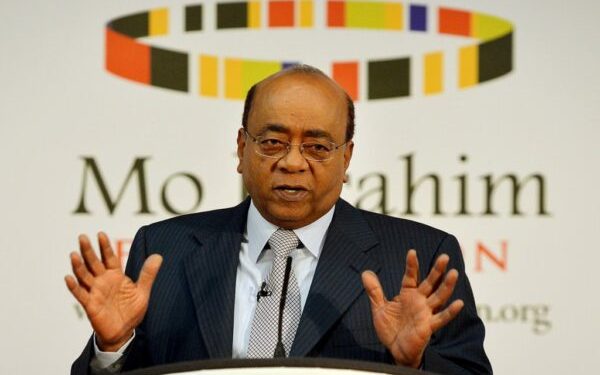The Mo Ibrahim Foundation has released its 2025 Forum Report Financing The Africa We Want, combining the most relevant data and figures on Africa’s financing landscape with key outcomes from the three days of debates at the 2025 Ibrahim Governance Weekend (IGW), held in Marrakech, Morocco, from 1–3 June, under the High Patronage of His Majesty King Mohammed VI.
In a global post-aid era, African leaders and organisations, international stakeholders and the continent’s youth across sectors gathered at the 2025 IGW and united behind a clear call: Africa must now lead and own its financial agenda. This is essential to accelerate progress towards the goals set by the African Union’s Agenda 2063 and the UN Sustainable Development Goals.
The report reflects the overarching consensus reached during the IGW that Financing The Africa We Want requires African-led ownership, autonomy and accountability. This involves defining the continent’s financial priorities, reshaping international partnerships, leveraging the continent’s own resources, and delivering on Africa’s development agenda through strengthened regional integration.
The report sets out five overarching pillars that formed the basis of this consensus:
- Build interest-based and symmetrical alliances: less pledges, better processes and mechanisms
Africa’s partnerships must be grounded in the continent’s own strategic interests, shifting away from traditional financial pledges and towards more effective mechanisms and capacity building processes.
- Capitalise on the world’s demand
With the rising global interest in Africa’s resources, the continent must move away from the former raw material export model to a diversified, value-adding economy. Global trade and investment frameworks must be adapted to incentivise local processing and green industrialisation through technology transfer and knowledge sharing.
- Shift the investment narrative
Africa must proactively reshape its image as a frontier investment destination. Improving transparency, rule of law, and mobilising more African capital to support African projects will be vital in building investor confidence and attracting global finance.
- Go at scale through continental integration
Accelerate the African Continental Free Trade Area (AfCFTA), scale intra-African trade, and pool resources through integrated development banks and regional value chains.
- Ensure governance, peace and security, and take full ownership of it
Sustainable development cannot take place without strong governance and peace. The report calls for institutional reforms to improve transparency and public accountability, and improved governance of Africa’s financial resources and natural assets to unlock domestic revenue and support climate and development finance mechanisms.
Commenting on the release of the report, Dr Mo Ibrahim, founder and chair of the Mo Ibrahim Foundation, said: “The decline of aid should not be seen as some sort of cliff-edge moment for Africa. It was never going to be enough to finance Africa’s development – and our huge continent’s place in the new global economy should never be determined by the generosity of international partners. This is the opportunity to rethink how we finance development on our own continent. First and foremost, we need to focus on governance, rule of law, security, without which none of this will be possible. And this is our sole responsibility. Because ownership comes with responsibility and accountability.”
The report builds on the Foundation’s 2025 Facts & Figures: Financing The Africa We Want, released in the lead up to the 2025 IGW, with updated data and expert contributions. While the earlier document provided a diagnostic overview of Africa’s financing landscape and untapped potential, this final version consolidates new insights and takeaways from the event.
Financing The Africa We Want includes the collective voice of IGW participants – from African government institutions and business leaders to youth representatives, civil society actors, academics, and international partners.
Forum Report list of contributions and quotes:
- Dr Akinwumi Adesina, President, African Development Bank
- Masood Ahmed, President Emeritus, Center for Global Development, MIF Council member
- Terfa Ashwe, Consultant, International Trade Centre, Mo Ibrahim Leadership Fellow 2024-2025
- Kanayo Awani, Executive Vice President, Afreximbank
- Bertrand Badré, Founder and Managing Partner, Blue like an Orange Sustainable Capital
- Ajay Banga, President, World Bank Group
- Nardos Bekele-Thomas, CEO, African Union Development Agency-NEPAD
- Benoît Chervalier, Founding President and Group CEO, BCH Invest
- Pamela Coke-Hamilton, Executive Director, International Trade Centre
- Alain Ebobissé, CEO, Africa50
- Serge Ekué, President, West African Development Bank
- E. Nadia Fettah Alaoui, Minister of Finance and Economy, Kingdom of Morocco
- Claver Gatete, Executive Secretary, UN Economic Commission for Africa
- Dr Tedros Adhanom Ghebreyesus, Director-General, World Health Organization
- Amadou Hott, former Vice President, African Development Bank
- Dr Mo Ibrahim, Founder and Chair, Mo Ibrahim Foundation
- Jean Kaseya, Director-General, Africa Centres for Disease Control and Prevention
- Pascal Lamy, former Director-General, World Trade Organization, MIF Council member
- Iker Lekuona, Director, International Centre for Asset Recovery at the Basel Institute on Governance
- Carlos Lopes, Professor, Nelson Mandela School of Public Governance at University of Cape Town
- John Youhanes Magok, Mineral Resources Development Expert, African Union, MIF NGN member
- E. John Dramani Mahama, President of Ghana
- E. Moussa Faki Mahamat, former Chairperson, African Union Commission, MIF Council member
- Moky Makura, Executive Director, Africa No Filter
- Gwede Mantashe, Minister of Mineral and Petroleum Resources of South Africa
- E. Ryad Mezzour, Minister of Trade and Industry, Kingdom of Morocco
- Hanan Morsy, Deputy Executive Secretary and Chief Economist, UN Economic Commission for Africa
- Tarek Mouganie, Founder and Group CEO, Affinity Africa
- Dr Ngozi Okonjo-Iweala, Director-General, World Trade Organization
- Dr Arkebe Oqubay, British Academy Global Professor, SOAS University of London
- E. Pedro Pires, Former President of Cabo Verde, MIF Laureate
- Pascal Saint-Amans, Co-Chair, Africa-Europe Foundation Working Group on Illicit Financial Flows
- Tarik Senhaji, CEO, Casablanca Stock Exchange
- Jozef Síkela, Commissioner for International Partnerships, European Commission
- Dr Vera Songwe, Founder and Chair, Liquidity and Sustainability Facility, MIF Council member
- E. Mahmoud Ali Youssouf, Chairperson, African Union Commission
- Samaila Zubairu, President and CEO, Africa Finance Corporation











